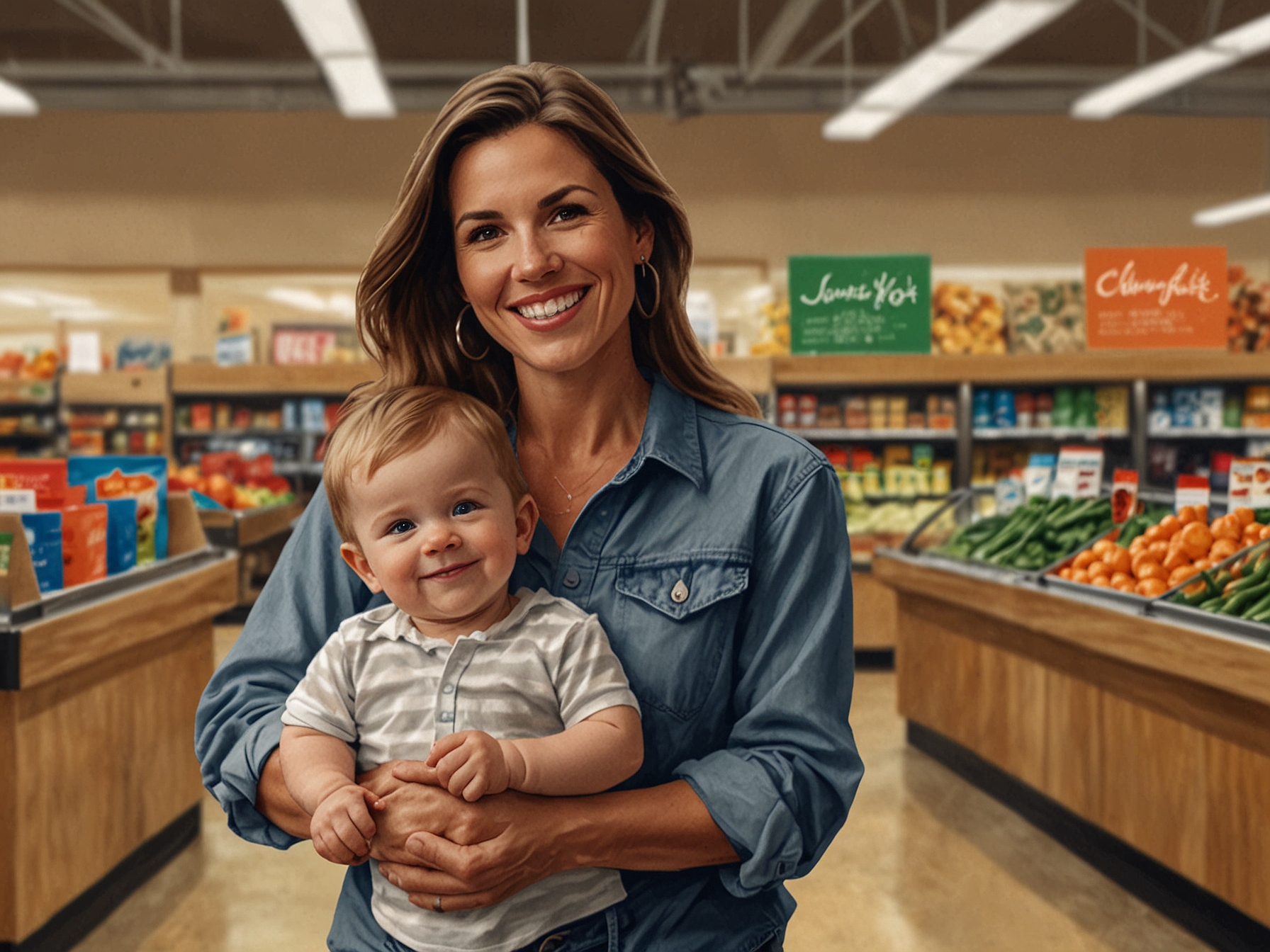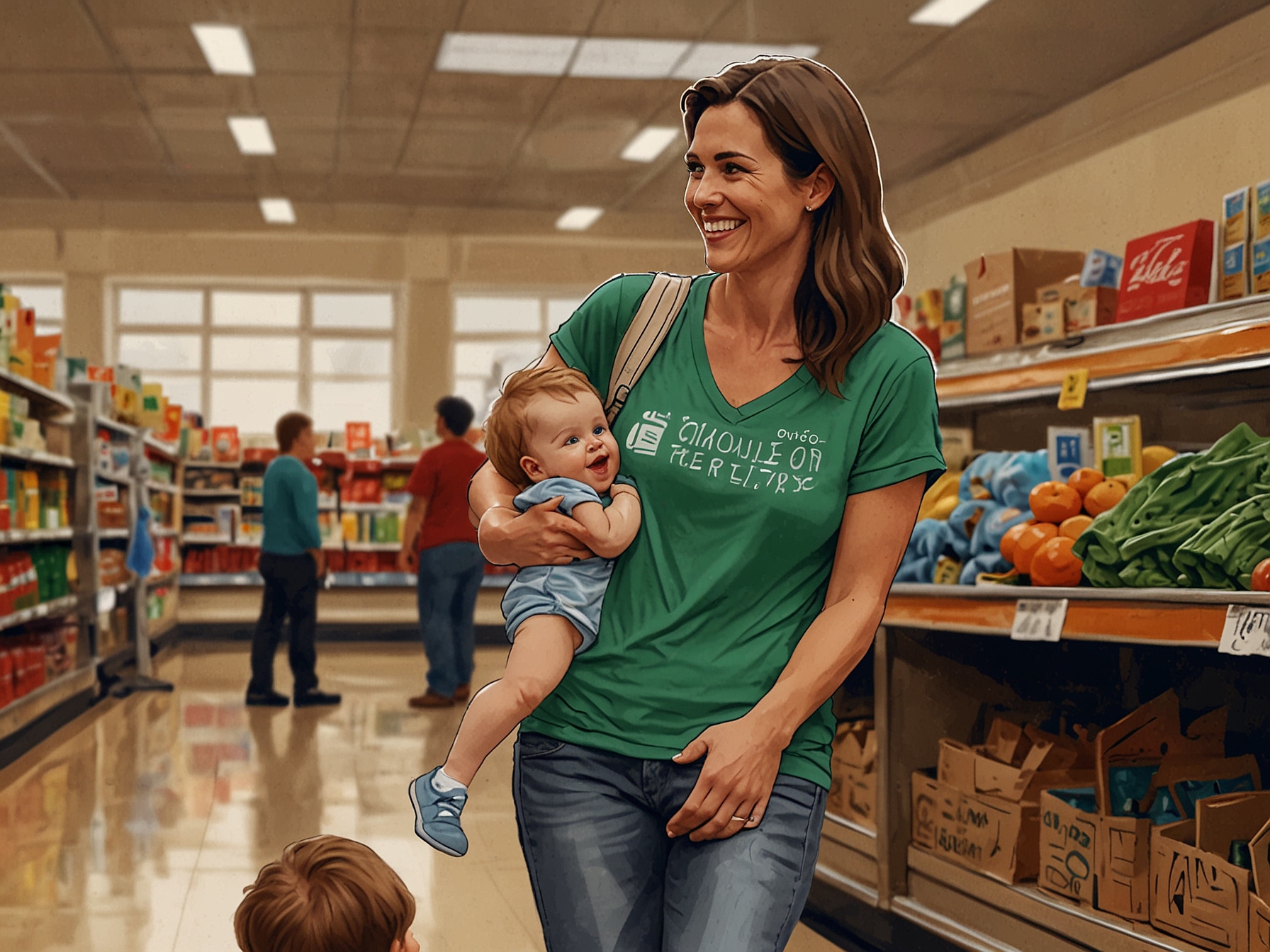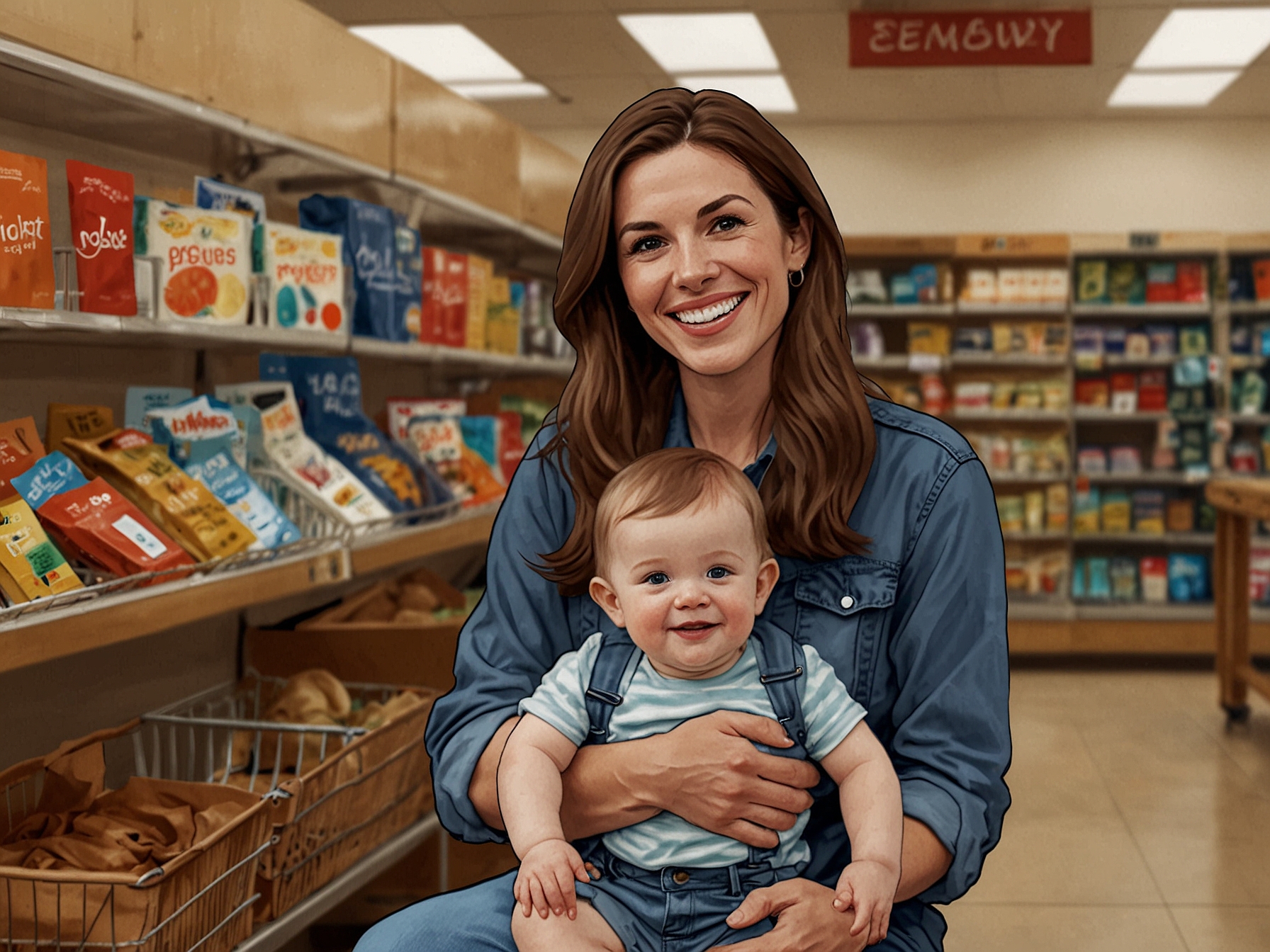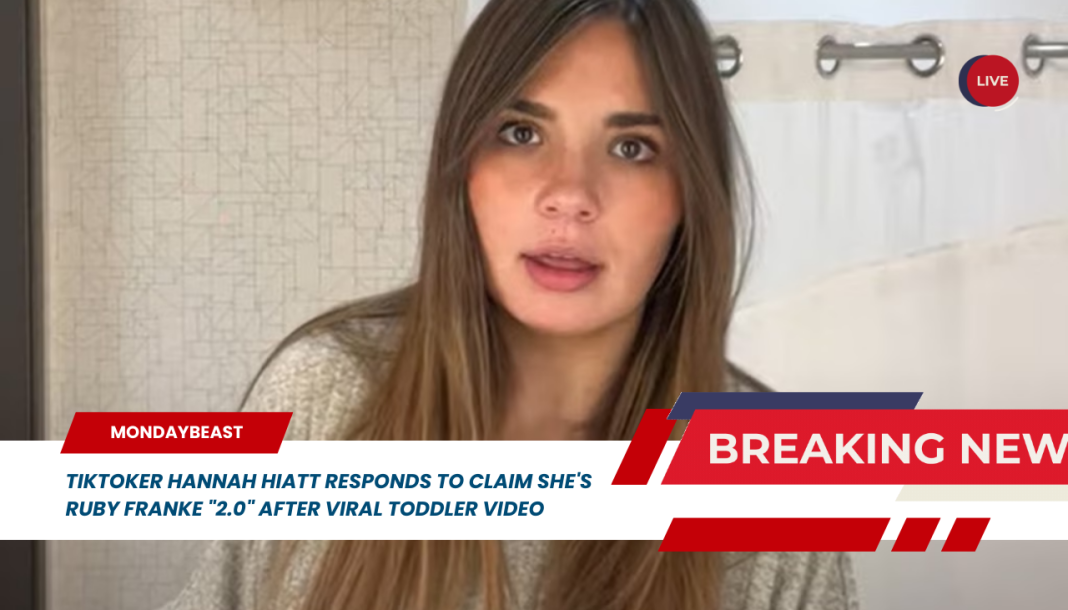In a world where social media can make or break reputations, the recent controversy surrounding TikToker Hannah Hiatt sparked an intense conversation. Are we too quick to judge parents based on fleeting snapshots of their lives? When a video of Hiatt’s toddler son James, sitting in a grocery cart and covering his face, went viral, the backlash was almost instant.

Some observers claimed he looked ‘terrified’ of his parents. They echoed oppressive worries and comparisons to Ruby Franke, the infamous YouTuber currently embroiled in serious child abuse allegations. This raises a big question: how do parents navigate such harsh scrutiny?
Hiatt, in a forceful response, dismissed the comparisons as ‘comical.’ It reflects the complexity of parenting today. Is it fair to label someone based on limited context? As she assured viewers, her family is ‘happy’ and ‘well-nourished.’ In the cutthroat arena of parenting on social media, those claims ring both reassuring and controversial. It stirs thoughts on the rush to judgment.

Hannah, whose family recently welcomed a new baby, asserted that ‘everything’s just fine’ at home. She provided an anecdote about James always having a clean bum and never sitting in a dirty diaper. This seems to hint at something deeper — the instinctual need to defend one’s parenting methods in the eye of a digital storm.
What remains particularly intriguing in this saga is the relationship between judgment and parenting styles. Hiatt further defended her husband, claiming their bond is strong, providing a fascinating glimpse into their family dynamic. The couple appeared united in addressing the negative commentary, and she highlighted that they engage in playful scaring, suggesting that James’ reaction was part of their father-son play.

Holding the perspective that not everything seen online tells the complete story is essential today. Could this be a lesson in understanding the playful swings of parenting? As social media influencers and common folk face similar scrutiny, there’s a shared nuance in parenthood that may often be overlooked.
How much do we project our fears onto the parenting styles of others? Hannah Hiatt’s narrative offers a chance to dissect these fears, whether they stem from genuine concern or the urge to become TikTok-famous. Is the quest for engagement affecting how we perceive parenting choices? The way parents are portrayed online deserves to be confronted thoughtfully, along with the weighty implications it carries.
Navigating parenting in a digital age poses challenges all its own. TikTok stars like Hiatt carry the burden of their choices under the unflinching gaze of a public eager to find fault. Comparing her to Ruby Franke, whose journey took a dark turn, makes us ponder how far judgment can stretch.
Is it fair to place each parent’s experience in the same box? Each family’s headspace is unique, and rooting through accusations on social media can unravel the fabric of parenting itself. Encouraging readers to reflect on these themes not only humanizes the experience, but also intertwines it with the broader narrative of community and vulnerability.
Is there a balance we can strike, one where understanding overshadows judgment in parenting? In closing, Hannah Hiatt’s saga sheds light on a critical issue—how the internet shapes perception. As she bravely combats the rumors levied against her family, are we witnessing a larger narrative about judgment in our society?
Every parent deserves the chance to parent without a filter, but in an era of viral content, that is easier said than done. Could Instagram and TikTok be platforms for empathy rather than speculation? Let’s hope we move toward a more compassionate social media space.




